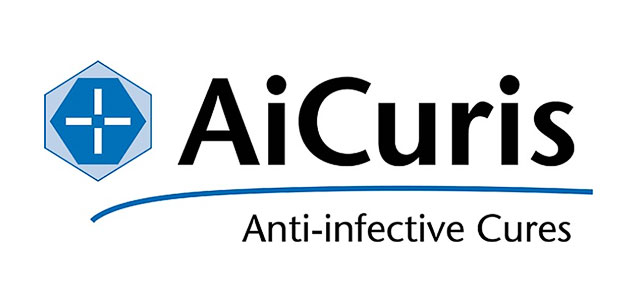
AiCuris receives approval from BfArM to initiate Compassionate Use Program for Pritelivir in Germany
- The Compassionate Use Program (CUP) may provide access to pritelivir for use in immunocompromised patients that have acyclovir-resistant mucocutaneous herpes simplex virus infections and foscarnet resistance or intolerance
- CUPs offer a method to provide patients suffering from an unmet medical need and with no further treatment options with possible access to medication currently not approved in their home country
- The on the 2nd of December 2020 announced approval is part of an Early Access Program (EAP) for Pritelivir in various countries throughout the world
AiCuris Anti-infective Cures GmbH, today announced the approval from the German “Bundesinstitut für Arzneimittel und Medizinprodukte (BfArM)” to initiate a Compassionate Use Program (Härtefallprogramm) for pritelivir for the treatment of immunocompromised patients who have acyclovir-resistant mucocutaneous herpes simplex virus (HSV) infections and in addition foscarnet resistance or intolerance. AiCuris is currently preparing a pivotal Phase 3 trial with pritelivir in immunocompromised patients whose HSV infections have become resistant to acyclovir as a basis for NDA submission.
Compassionate use is a treatment option that allows the use of an unauthorised medicine for the treatment of patients who have a disease that cannot be treated satisfactorily with any currently authorised medicine and who cannot enter clinical trials. These programs are only put in place if there is sufficient evidence of the effectiveness and safety of the drug and if the medicine is expected to help patients with life-threatening, long-lasting, or seriously debilitating illnesses.
The Compassionate Use Program in Germany is part of an Early Access Program (EAP) which is operated by myTomorrows, a Netherlands-based HealthTech company facilitating access to medicines in development and real-world data collection.
About Pritelivir
Pritelivir is an innovative, highly active and specific inhibitor of herpes simplex virus (HSV). Derived from a novel chemical class (thiazolylamides), pritelivir is active against both types of herpes simplex virus (HSV-1 and HSV-2), causing labial and genital herpes, and retains activity against viruses which have become resistant to marketed drugs. Pritelivir has a novel mode of action that is distinct from other antiviral agents currently in use for treating HSV infections (i.e., the nucleoside analogs acyclovir and its prodrug valacyclovir as well as famciclovir, the prodrug of penciclovir). While nucleoside analogs terminate ongoing DNA chain elongation through inhibition of viral DNA polymerase, pritelivir prevents de novo synthesis of viral DNA through inhibition of the helicase-primase complex. In addition, it does not require activation within an HSV infected cell by viral thymidine kinase and is therefore also protective to uninfected cells.Pritelivir, showed superiority against standard treatment valacyclovir in a clinical Phase 2 trial in patients with genital HSV-2 infection and is currently in a Phase 2 clinical trial in the U.S., to assess efficacy and safety comparing pritelivir to i.v. foscarnet, a virostatic agent which is used mainly for the treatment of HSV resistant to other antiviral drugs. In June 2020, AiCuris was granted Breakthrough Therapy Designation by U.S. FDA for Pritelivir for the treatment of HSV infections in immunocompromised patients. Based on early results from the ongoing clinical Phase 2 study, AiCuris is in close communication with the FDA and preparing a pivotal Phase 3 trial as a basis for NDA submission.
About HSV
Herpes simplex viruses are widespread (seroprevalence up to 100%, depending on geographic area and subpopulation) and are divided into herpes simplex virus type 1 (HSV-1) and type 2 (HSV-2). Infections lead to lifelong persistence of the virus, with frequent and sometimes painful recurrences. While HSV-1 predominantly causes oral lesions (cold sores), HSV-2 manifests in the genital region and is mainly sexually transmitted. In immunocompromised patients, HSV can lead to serious complications. The negative stigma associated with genital herpes and visible facial lesions may cause psychological distress.According to the World Health Organization (WHO), an estimated 491 million people aged 15-49 (13%) worldwide were living with genital herpes caused by HSV-2 in 2016. Prevalence of HSV-2 infection was estimated to be highest in Africa (44% in women and 25% in men), followed by the Americas (24% in women and 12% in men ). It was also shown to increase with age, although the highest numbers of newly infected people were adolescents.
For inquiries on Early Access to pritelivir, please contact myTomorrows via .
More information here.